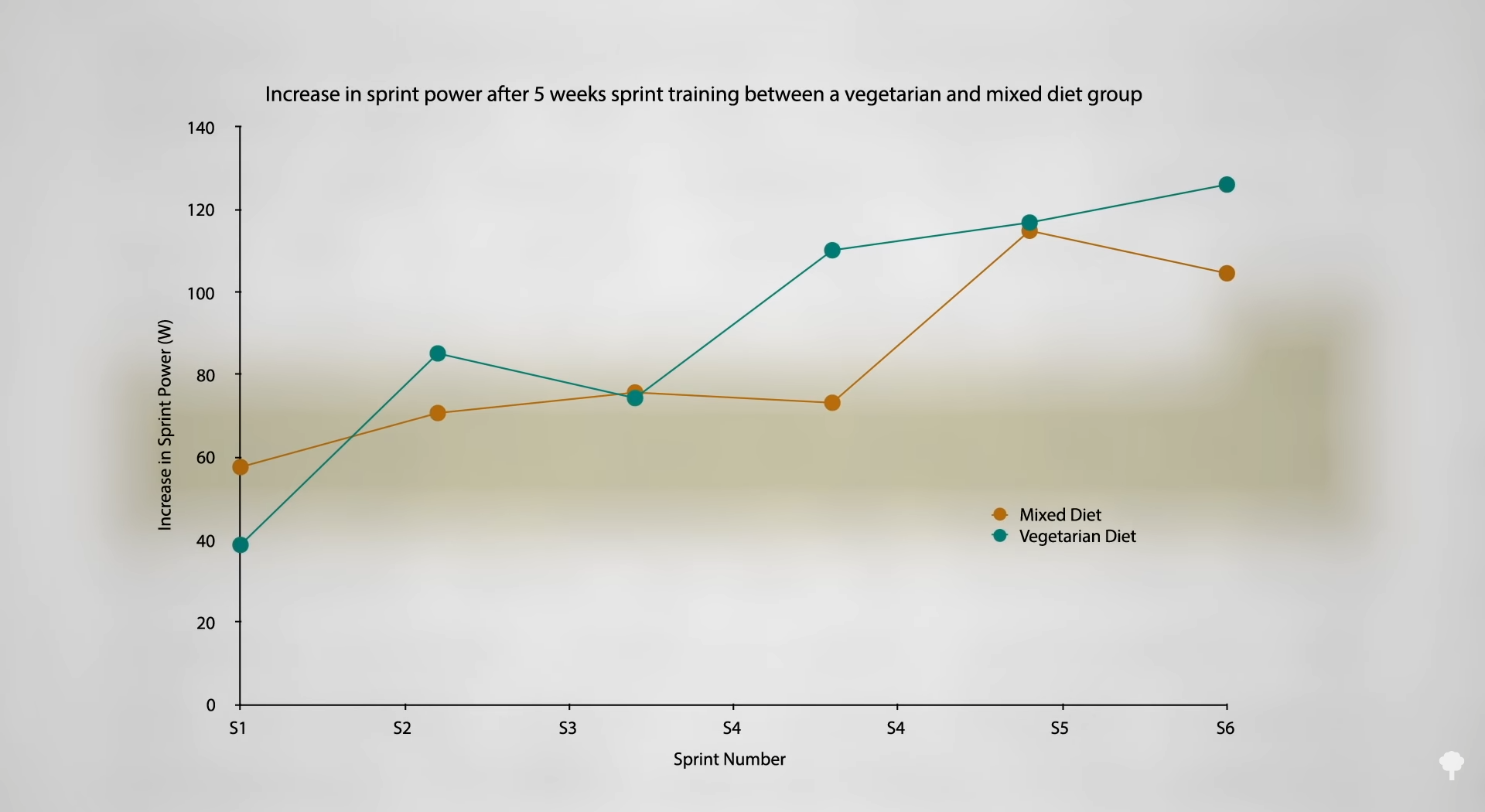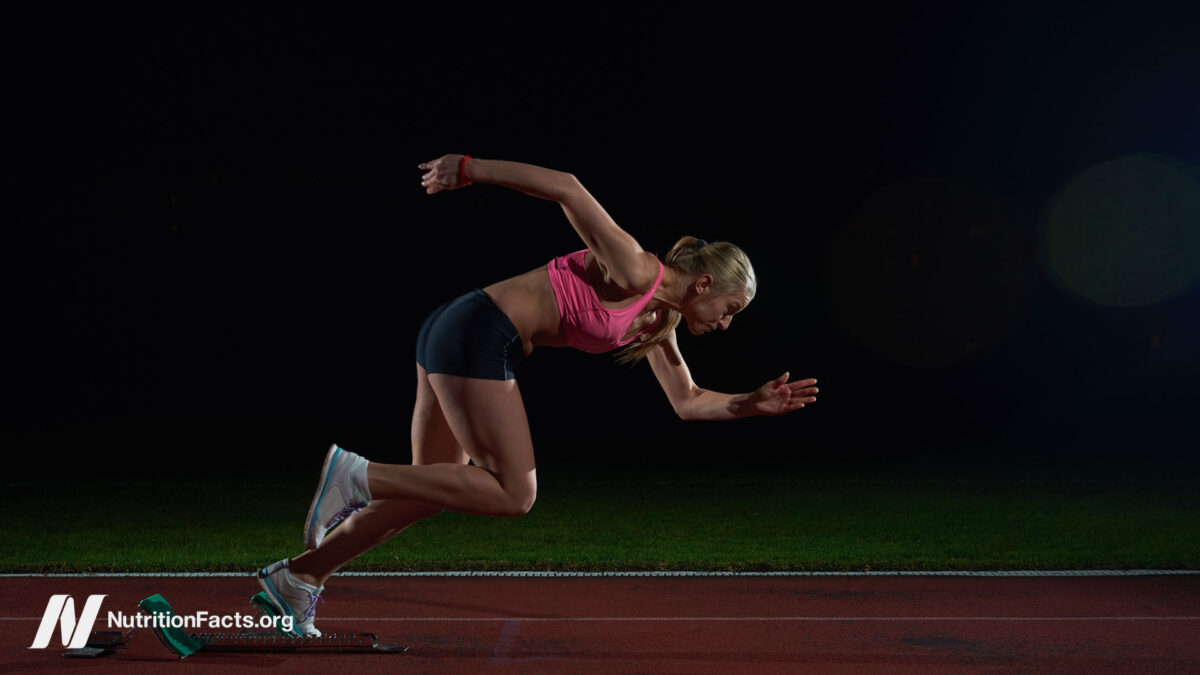Randomized controlled trials put plant-based eating to the test for athletic performance.
Historical examples of successful plant-based athletes range from the gladiators in ancient Rome to the Tarahumara Indians who run 160-mile races for the fun of it. That’s six back-to-back marathons. But, they weren’t put to the test until the last century or so in a study purporting to show “without reasonable doubt that the flesh-eating group of athletes was very far inferior in endurance to the abstainers, even the sedentary group” of vegetarians—meaning it isn’t that the veg athletes won simply because they had trained harder or something. Indeed, there certainly are advantages to plant-based eating, like more antioxidants to combat exercise-induced oxidative stress and the anti-inflammatory nature of many plant foods that may accelerate muscle repair and strength recovery. But, do you have to eat this way for years, decades, or even your whole life to get these apparent benefits? I discuss this in my video Vegetarian Muscle Power, Strength, and Endurance.
What if you took some Texas men, eating their regular Texan diet, put them through a maximal exercise test, and then asked them to cut out meat for four days. Then, after those four days without meat, you tested them again to measure time to exhaustion, ramping up the treadmill to see how many minutes could they go without collapsing? A researcher did this and found a significant difference favoring the vegetarian diet, which boosted the time to exhaustion by about 13 percent, as you can see at 1:28 in my video. Of the five participants, “each subject had a higher time to exhaustion after following a vegetarian diet.” But there was a fatal flaw to the study. Did you catch it? They were all in the same sequence—meat first, then veg—and any time you take a test a second time, you may do better just because you’re more familiar with it. If the Texans went back to eating meat after being on the vegetarian diet and their performance tanked during a third test, then you might be onto something, but this isn’t very convincing. And, even if the effect is real, it may not be the meat reduction per se, but a function of improved glycogen stores from eating more carbohydrates or something.

What about putting athletes on a vegetarian versus omnivorous diet before a 621-mile race? (You’ve heard of a 5K? This is a 1,000K!) And, what if you made sure to design the two diets so all of the athletes got about the same percentage of carbs? As you can see at 2:16 in my video, researchers did this and found that the finishing rates of the athletes were identical and their total times were within just a few hours of each other whether on the vegetarian diet or the omnivorous one.

Same with sprinting. As you can see at 2:44 in my video, a study randomized people into vegetarian or mixed diet groups, and there was no significant difference in sprint power between the two groups. The researchers concluded that “acute vegetarianism has no acute adverse effects on adaptations to sprint exercise,” but no apparent performance benefits either.

Same with strength training, too. A study measured maximum voluntary contraction of both biceps and quadriceps before and after each dietary period, and no significant difference was seen either way. When you put together all of the studies that compare physical performance in these kinds of randomized, controlled trials, where you have folks eat more plant-based for just a few days or weeks, “there appeared to be no differences at least acutely between a vegetarian-based diet and an omnivorous diet in muscular power, muscular strength, anaerobic or aerobic performance.” Long-term, though, a plant-based diet can be conducive to both endurance performance and health. “Whereas athletes are most often concerned with performance, vegetarian diets also provide long-term health benefits and a reduction in risk of chronic disease” and are “associated with a reduced risk of developing coronary heart disease”—the number one killer of men and women—“breast cancer, colorectal cancers, prostate cancer, type 2 diabetes, insulin resistance, hypertension, cataracts, and dementia.” Doesn’t matter how you shred if you’re dead.
I was honored to be a scientific consultant for the amazing documentary about diet and athleticism called The Gamechangers. Check it out at http://gamechangersmovie.com/.
